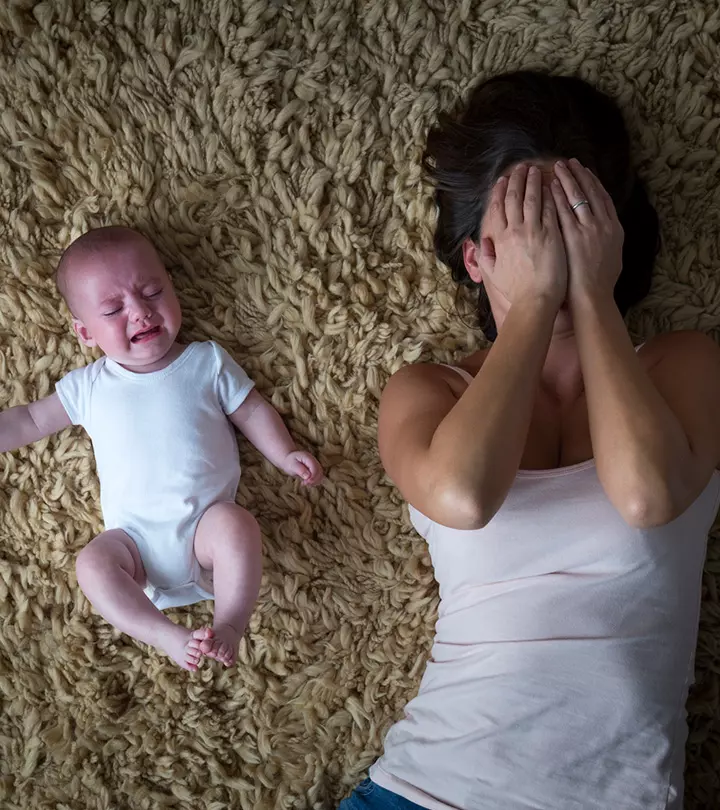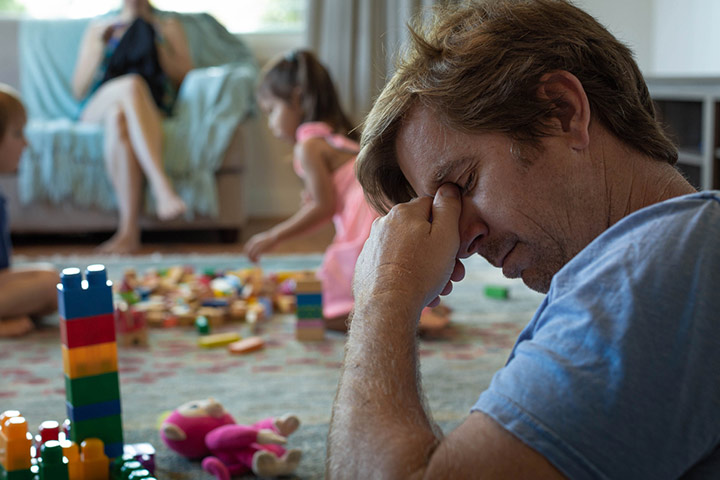
Image: iStock
Parenthood can be stressful and exhausting. Your kids need you for everything all the time and catering to their needs is a mammoth task. This is made harder if a parent suffers from a mental illness or is not in a good mental state. Usually, the mental state of the parent determines how they execute and view their parenting. This means that parents suffering from depression and other mental illnesses are generally dissatisfied with their parenting and end up beating themselves over it. This only worsens their mental health. Seeing this behavior can have a direct negative effect on children and so for the sake of the baby and themselves, it is best if parents seek help immediately. Unfortunately, society doesn’t treat mental illnesses with the same urgency as physical injuries and parents may hesitate to get the care they need.
What Is Parental Depression?
Image: IStock
This is a condition that occurs when a person with depression is unable to parent properly (1). This can be detrimental for both parent and child as the parent may not be able to properly care for their child leaving them to fend for themselves. Due to the inconsistency of care, kids will find themselves very weakly attached to their parent. Children are not equipped to handle complex emotions and mental illnesses and don’t know how to deal with a depressed parent. They may end up throwing tantrums in order to get your attention, only making the situation worse. Seeing their child dissatisfied and sad will leave the parent feeling like a failure which increases their depression exponentially day by day.
How Does Parental Depression Affect Parenting?
1. Ineffective Parenting Style
Depression makes you feel like you are the root cause of all your children’s problems which makes it practically impossible to set and enforce healthy boundaries. This leads to further behavioral issues in their kids until it can no longer be rectified.
2. Unhealthy Coping Mechanisms
Image: IStock
Children mimic the mannerisms of their parents, which means that they also learn how to deal with stress from you(2). Children learn how to deal with stress calmly through their mother and learn how to be more assertive through their father. If either party is unable to fulfill their role due to suffering from a mental illness, it throws off the balance and adversely affects the child.
3. Creates A Weak Bond
Depression drains people of energy and happiness and the ability to interact with others, even their own children. Due to this detachment, the kids learn to live without the parent being around, therefore weakening their bond.
4. Parental Guilt
All parents experience parental guilt and this increases significantly when you are depressed. People with depression do not have a positive view of themselves and often see themselves as the cause of all problems. The inability to parent as they would like to leaves them frustrated and feeling hopeless. They may be doing a decent job but the guilt and self-blame will convince them otherwise.
How To Treat Parental Depression?
1. Take Your Medication
Image: IStock
Actively taking antidepressants after consulting your doctor, therapist and psychiatrist will do wonders for your overall well-being (3). It may take a couple of weeks or months to show results depending on what you’ve been prescribed. But they do work and will help you gain the energy and motivation to interact with your kids.
2. Go To Therapy
Image: IStock
One of the most effective ways to deal with depression long-term is by going to therapy(4). Having regular sessions to do exercises, work on techniques to handle depressive episodes and practicing what’s been taught will help you get the right tools to do life. The routine checkups will also fill you with hope as you see steady improvement as time goes by. However, therapy is not an option for everyone as it can be expensive. Thankfully you can find these tools online and there are several organizations who are willing to help you by waiving off the fee.
3. Group Therapy
Image: IStock
Knowing you are not alone is great motivation for people. Joining a group therapy session that caters to parents with mental illnesses (5). Not only will you be able to relate with each other but you will be in a space that encourages you to do better.
Dealing with depression is challenging and so is being a parent. Coupled together, it may look like too much to handle but with the right help and support, you will be able to overcome hurdles and care for your children. If you are suffering from depression it is important to know that you are doing the best you can and things are not as bad as they may seem in your head.

















